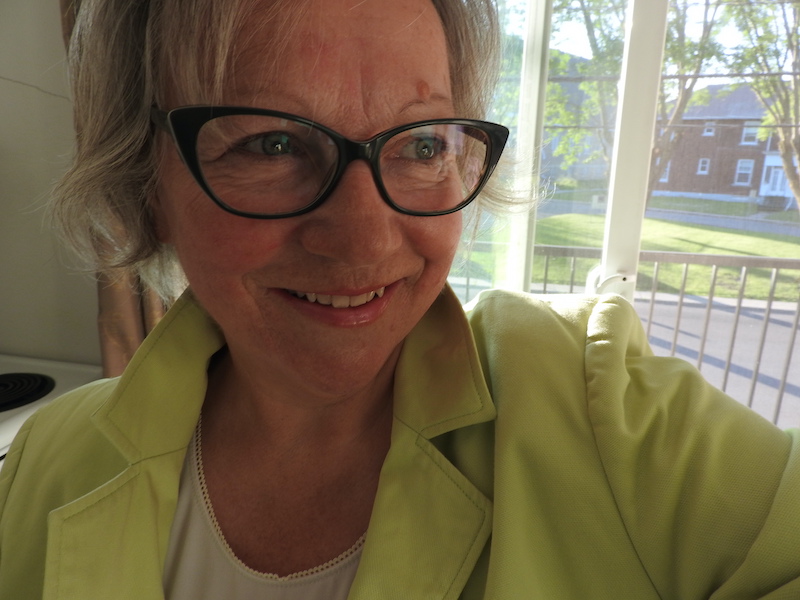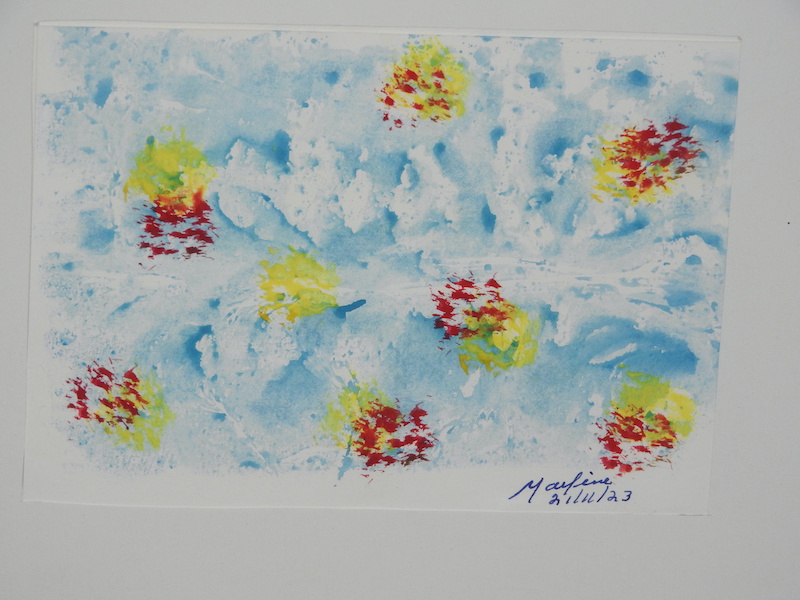
You Are Not Alone
Contributed by French support group member, Marlène Dubé
“You are not alone.” It’s a phrase that can transform lives.
This morning as I rise, I’m uncertain about the direction this story will take. But, that’s okay! Right now, what’s important are not my thoughts, but my emotions—what my heart is eager to articulate, convey, and share with you.
Allow me to introduce myself: my name is Marlène Dubé. At 65, I am a woman full of joy, living single and childfree.
Finding support
 I stumbled upon Brain Tumour Foundation of Canada and its wealth of resources while researching meningioma. What an incredible find, at a time when I felt isolated. Reading “you are not alone” in the Non-Malignant Brain Tumour Handbook instantly lifted me from an unsettling loneliness.
I stumbled upon Brain Tumour Foundation of Canada and its wealth of resources while researching meningioma. What an incredible find, at a time when I felt isolated. Reading “you are not alone” in the Non-Malignant Brain Tumour Handbook instantly lifted me from an unsettling loneliness.
It inspired me to join a support group that continues to be there for me, even though I sometimes feel guilty for receiving support from those who seem to have it harder than I do. But then, a conversation with someone who had undergone surgery for a benign meningioma helped me see that my experiences and feelings are significant. This individual unknowingly validated something within me that needed acknowledgment. I quietly realized that the concept of “support” in this group is anything but trivial or idealistic.
Understanding the consequences
A few years back, when I was diagnosed with a benign tumour in the frontal lobe, it caught me off guard. I had assumed my headaches were stress related. The diagnosis didn’t really hit me at first. After all, benign sounds so … harmless. It’s benign!
However, a neurologist treating me for multi-level degenerative disc disease remarked, “Ms. Dubé, just because it’s benign doesn’t mean it’s without consequences.”
“Really!” I responded.
Gradually, I came to understand the consequences he referred to.
When I attempted to return to my personal development lectures, my brain felt like a pressure cooker—ready to burst! I struggled to memorize what I wanted to share with my audience. To grasp my topics and rehearse them. Brain fatigue. Moments of short-term memory loss. It was puzzling.
 Previously able to speak for hours unaided by notes, I now struggled to find the right words. Cognitively, I wasn’t as agile. I had become more susceptible. I recently endured a traumatic episode: temporary facial paralysis. Not to mention, the cranial pressure. Sensitivity to noise and light increased. In essence, I was changed. Once an advocate for pursuing dreams and embracing differences, I had now lost my own and didn’t know how to leverage my uniqueness anymore.
Previously able to speak for hours unaided by notes, I now struggled to find the right words. Cognitively, I wasn’t as agile. I had become more susceptible. I recently endured a traumatic episode: temporary facial paralysis. Not to mention, the cranial pressure. Sensitivity to noise and light increased. In essence, I was changed. Once an advocate for pursuing dreams and embracing differences, I had now lost my own and didn’t know how to leverage my uniqueness anymore.
Now, I do. I’m picking up the pen again, or rather, positioning myself in front of a keyboard to spread awareness about the impact of non-malignant brain tumours.
“Socially, there’s a tendency to downplay, rationalize, or stay positive about the invisible.”
I was guilty of it, too. We think that if it’s benign, it can’t be that serious, burdensome, or dramatic. As a result, we subconsciously withhold compassion from ourselves and others.
What benefits my brain most are nature, photography, painting, poetry, writing, walking, humour, meditation, and meaningful encounters.
I’d like to express all my gratitude towards Brain Tumour Foundation of Canada. Indeed, with you, I feel far from alone. Thank you!